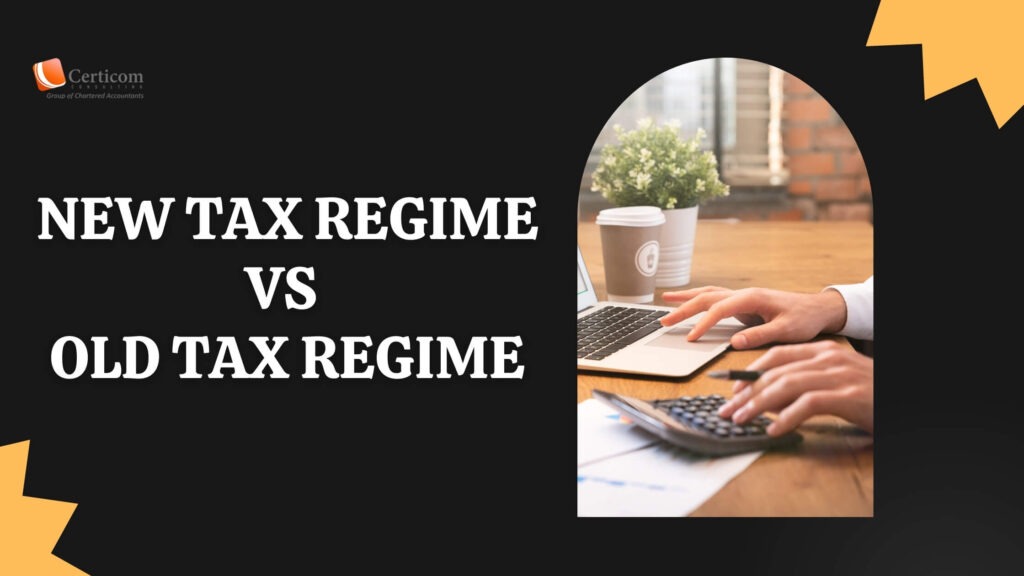New Tax Regime vs. Old Tax Regime. Which One Is Right for You?

With the Union Budget 2024-25 now in place, Indian taxpayers are once again faced with the decision of choosing between the new tax regime and the old tax regime. While the latest Budget has made the new tax regime more attractive, the choice between the two should still be evaluated on an individual basis. Below is a comparison of the income tax slabs under both regimes for FY 2024-25 and guidance on which option may be more beneficial depending on your financial situation.
Income Tax Slabs for FY 2024-25
New Tax Regime (FY 2024-25)
Introduced in the Budget 2020, the new tax regime aims to simplify the tax structure by offering lower tax rates but without most deductions and exemptions. The revised income tax slabs under the new tax regime for FY 2024-25 are as follows:
- Income up to ₹3 lakh: Nil
- ₹3 lakh – ₹7 lakh: 5%
- ₹7 lakh – ₹10 lakh: 10%
- ₹10 lakh – ₹12 lakh: 15%
- ₹12 lakh – ₹15 lakh: 20%
- Above ₹15 lakh: 30%

Old Tax Regime (FY 2024-25)
The old tax regime allows taxpayers to claim various deductions and exemptions, such as HRA, LTA, and Section 80C, among others. The income tax slabs under the old tax regime for FY 2024-25 are as follows:
- Income up to ₹2.5 lakh: Nil
- ₹2.5 lakh – ₹5 lakh: 5%
- ₹5 lakh – ₹10 lakh: 20%
- Above ₹10 lakh: 30%
New Tax Regime vs. Old Tax Regime: Which Is Beneficial?
1. For Low-Income Earners (Up to ₹5 Lakh)
For individuals with an annual income of up to ₹5 lakh, both regimes offer similar tax benefits due to the standard deduction in the old regime and the basic exemption limit in the new regime. However, the new tax regime might be slightly more advantageous due to its lower tax rates.
2. For Middle-Income Earners (₹5 Lakh – ₹10 Lakh)
Middle-income earners who have limited investments and do not claim multiple deductions may find the new tax regime more beneficial due to its lower tax rates. However, those who extensively utilize deductions under Section 80C, 80D, and HRA may save more under the old tax regime.
3. For High-Income Earners (Above ₹10 Lakh)
High-income earners with significant investments and numerous deductions will likely benefit more from the old tax regime. The higher tax rates in the new regime might offset any savings made through lower rates if deductions are not claimed.
4. For Salaried Individuals
Salaried individuals who benefit from exemptions like HRA, standard deduction, and Section 80C investments may find the old tax regime more favorable. While the new tax regime offers simplicity, it might not provide the same level of tax savings for those maximizing their deductions. However, for those with minimal or no investments, the new tax regime could still be a better option.

5. For Self-Employed Individuals
Self-employed individuals with fewer opportunities to claim deductions may find the new tax regime more appealing. The lower tax rates and simplified structure can lead to significant tax savings for those without substantial investments in tax-saving instruments.
The choice between the new tax regime and the old tax regime for FY 2024-25 largely depends on your income level, investment habits, and financial goals. While the new tax regime offers simplicity and lower rates, the old regime provides significant savings through deductions and exemptions. It’s essential to evaluate your financial situation carefully and, if necessary, consult a tax advisor to make the best decision.
Related Post
A Beginner’s Guide to E-Filing Income Tax Return for FY 2024-25
Faking Tax Deductions? You Could Be Penalised Up To 200% Under Income Tax Rules
Book A One To One Consultation Now For FREE
How can we help? *




